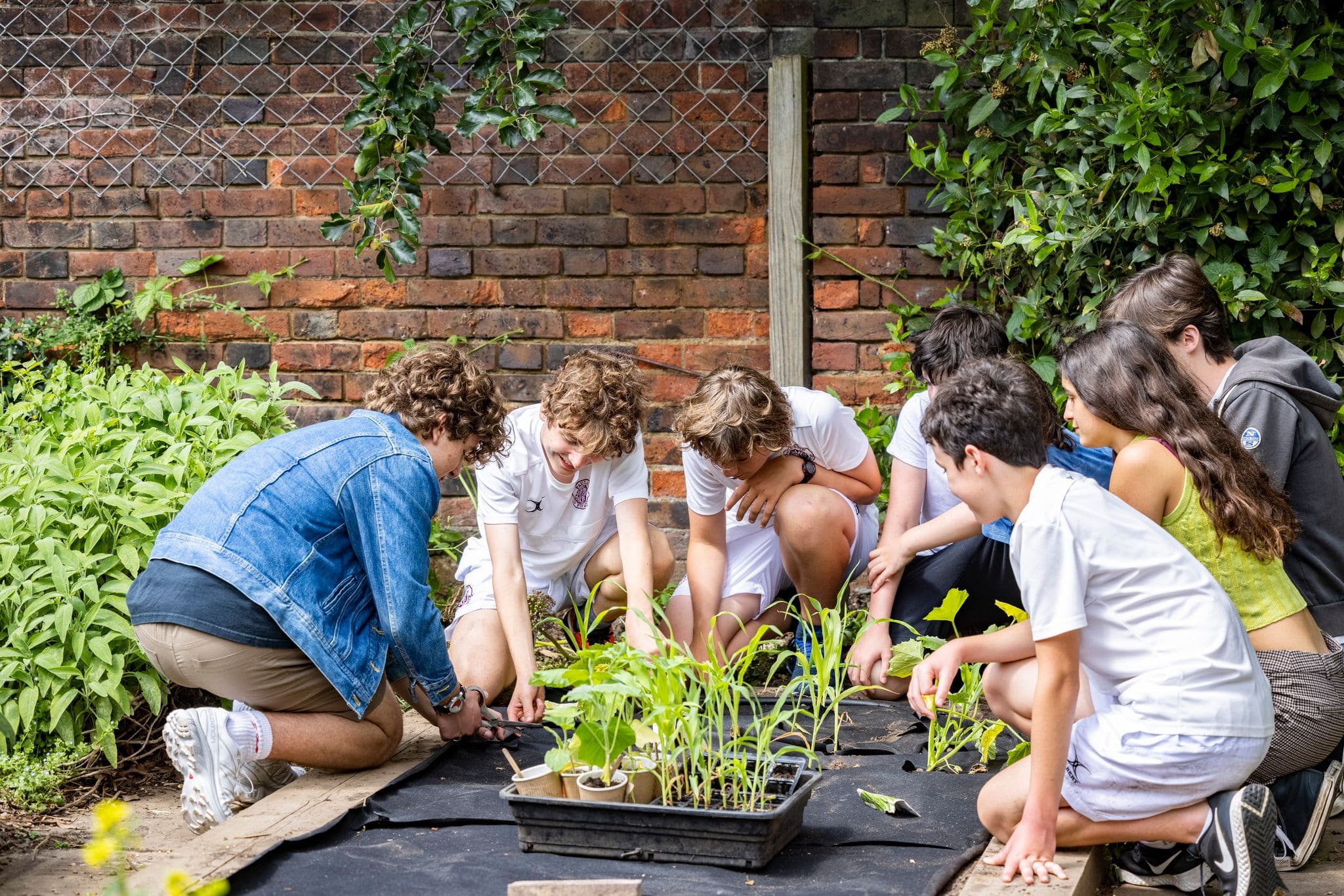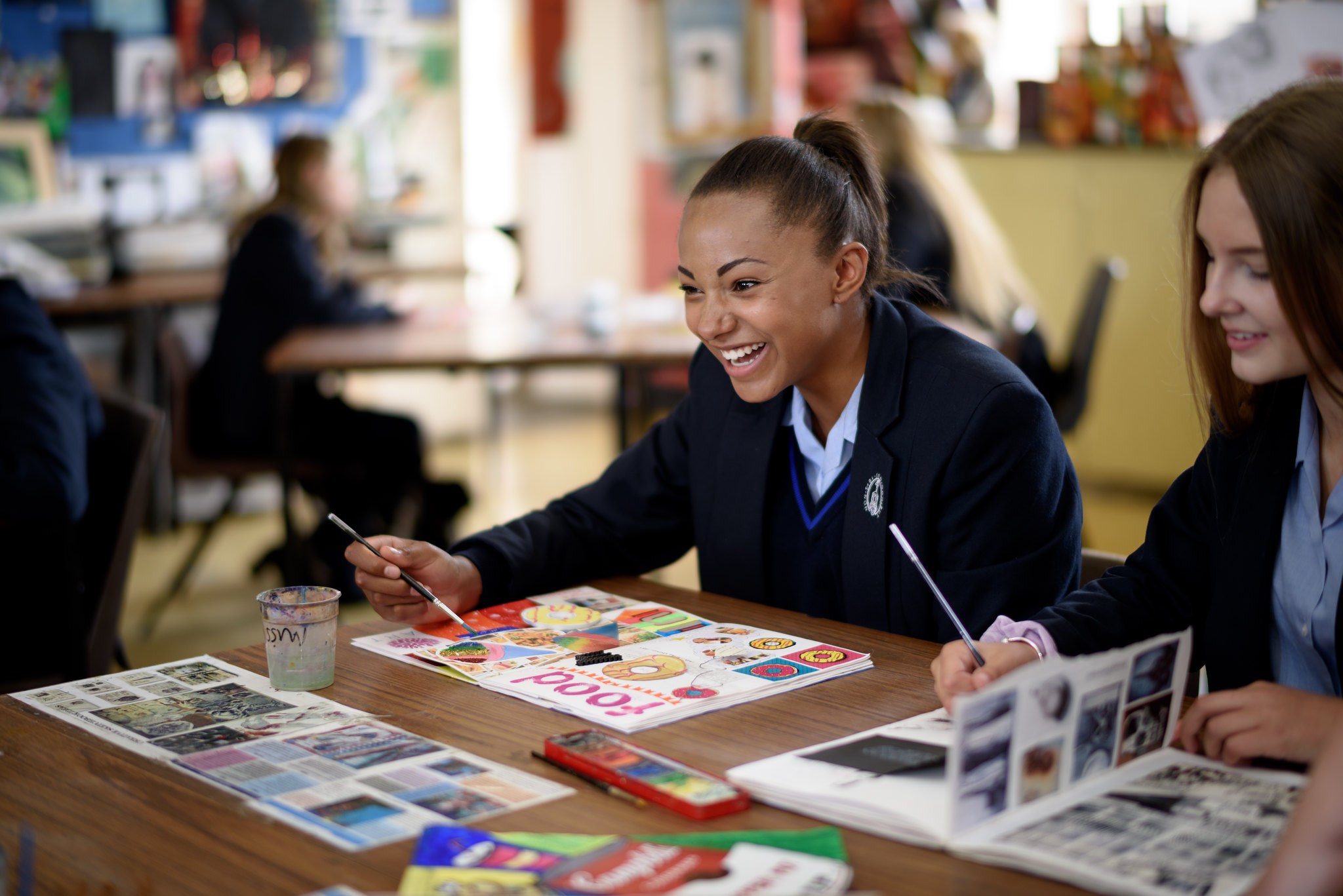The HMC Sustainability Hub is a collection of stories and resources that will hopefully inspire and enlighten schools on their sustainability journeys.
This page contains brief anecdotes from HMC schools about some of the recent steps to sustainability that they have already been taken, as well as links to social media stories that have been posted during the annual UN Conventions on Climate Change (COP28 in 2023) and other dates that raise awareness of environmental sustainability.
Numerous resources have also been offered by staff in HMC schools that we hope will spark ideas and inform further research, as will our collection of blogs and case studies that can all be found below and in News & Views, here.
Sustainability at Abingdon School
Case study by Abingdon School
Sustainability is a key area of importance at Abingdon School and, through their use of the One Planet Living Framework, there are a wide variety of initiatives that they’re working on to help tackle climate change and promote a more sustainable way of living.
Switch Off Fortnight, the clean plate challenge and litter picking as part of the Million Mile Clean are just a few of the projects they’re involved in, and now they’re looking forward to meeting their new Ecobot in Spring 2024, that they hope will help them tackle food waste more effectively too.
Find out more, here.
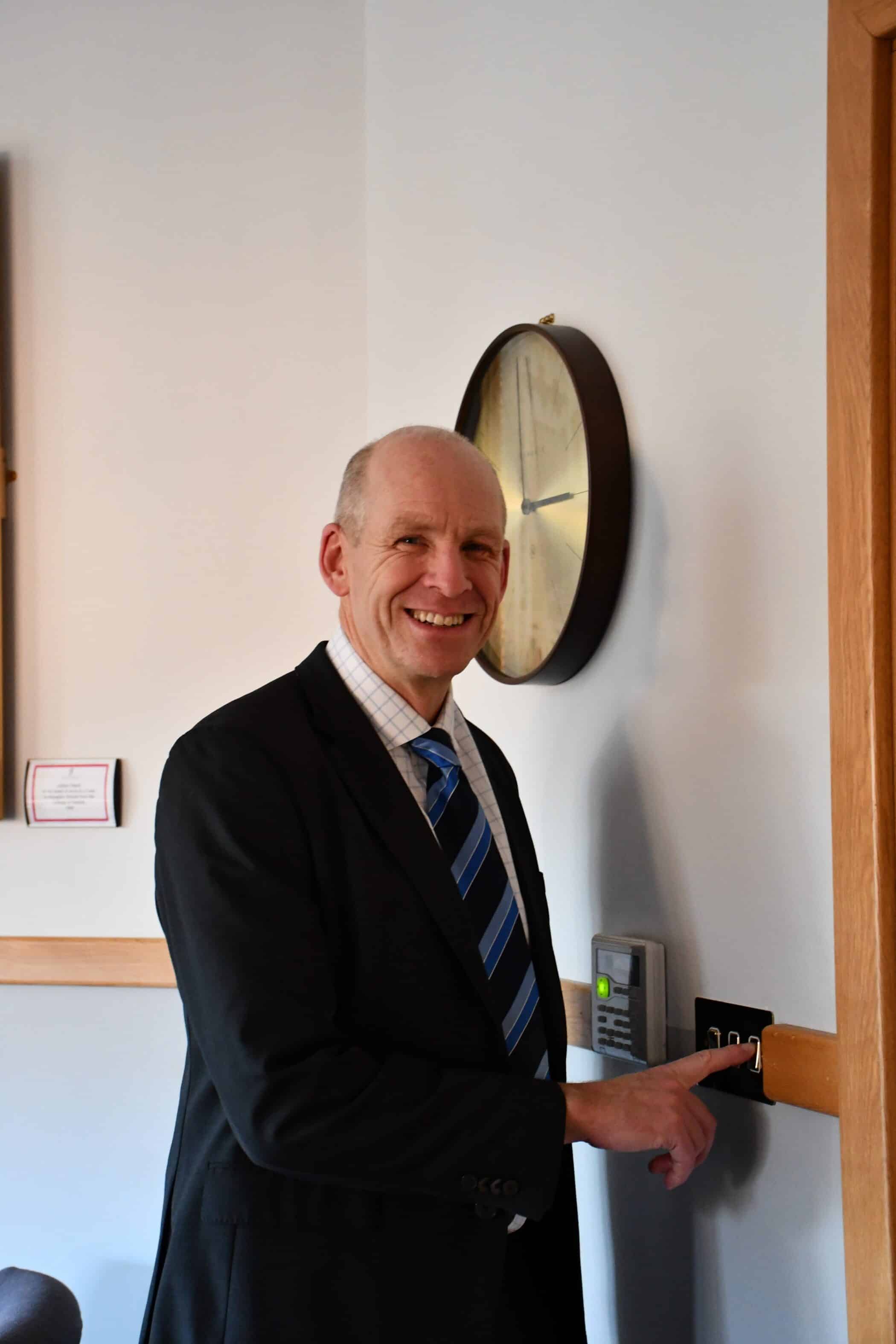
Bristol Education Partnership: inspiring our community towards Net Zero
Blog by Fiona Carnie, Project Lead, Bristol Education Partnership
The fourteen secondary schools within the Bristol Education Partnership (BEP) – including 6 members of HMC – are working hard to tackle the climate emergency and are exploring ways of reaching the target of net zero carbon emissions at the earliest opportunity.
The BEP Climate Challenge Project includes:
- Climate Challenge conferences to report on progress and share ideas.
- Looking at how to incorporate Climate Change Education across the Curriculum.
- Careers and Sustainability events.
- Supporting schools to introduce more locally produced, sustainably farmed, seasonal and nutritious food to benefit whole school communities as well as local businesses.
Further details of which can be found in the blog, here.
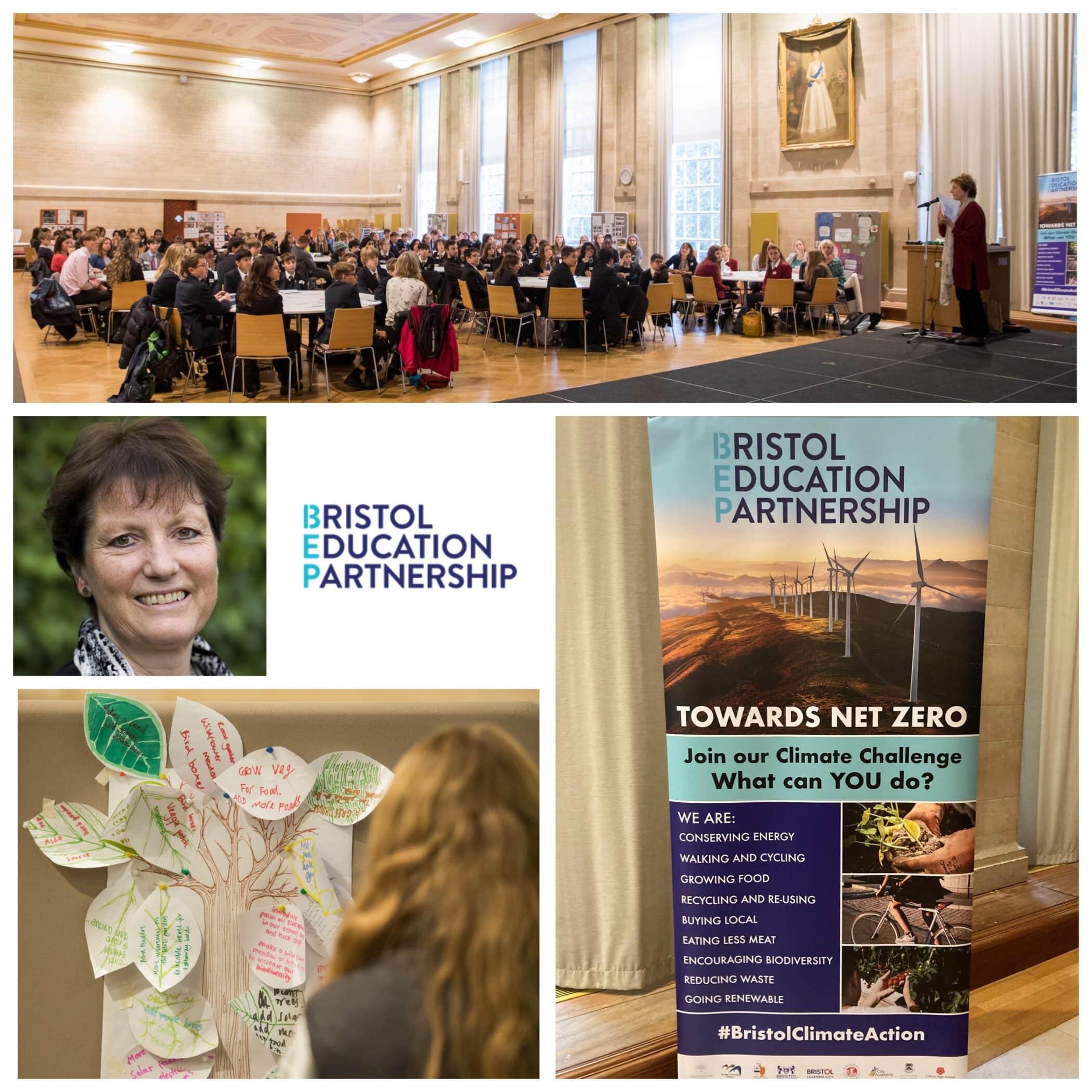
Environmental Sustainability at Highgate School:
Since the publication of Highgate School’s Environmental Sustainability Initial Strategy Plan in 2020, they have been working hard on their environmental performance in a range of areas. Recent successes include the establishment of a wildlife club for Key Stage 3 pupils and the hosting of a Mock COP event to parallel COP28, where Zack Polanski of the Green Party was welcomed as a guest speaker, as well as pupils from state and independent schools.
Behind the scenes, the school has been working on trips and food—both areas where cuts in carbon emissions can be made. This work has been informed by a detailed survey of Highgate staff on their thoughts and feelings about the environment, and has also been feeding into improved environmental training for staff. June 2024 will see Highgate School hosting the third London Schools Eco Network CPD day for environmental educators across the capital. Look out for details on their website.
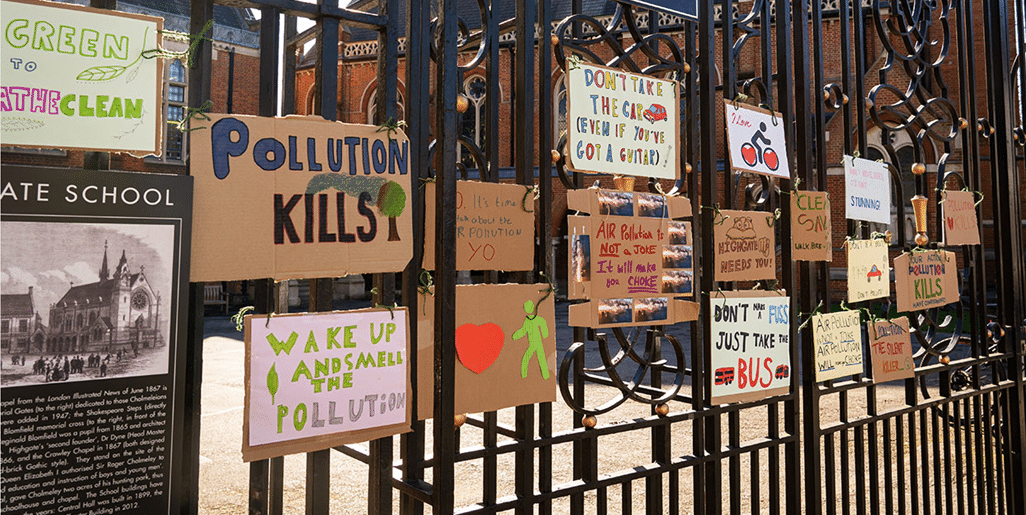
Haileybury Youth Trust training refugees in Uganda to be the next generation of climate-friendly builders
Case Study by Russell Matcham, Director, Haileybury Youth Trust
Haileybury Youth Trust has both a unique history and a host of unique ways to simultaneously tackle climate change and provide education, training and support to refugee communities. This new case study describes some of the positive impacts recent projects have had in Uganda and for climate change, as well as explaining how pupils back at Haileybury benefit from the projects too.
Learn more about their work here.
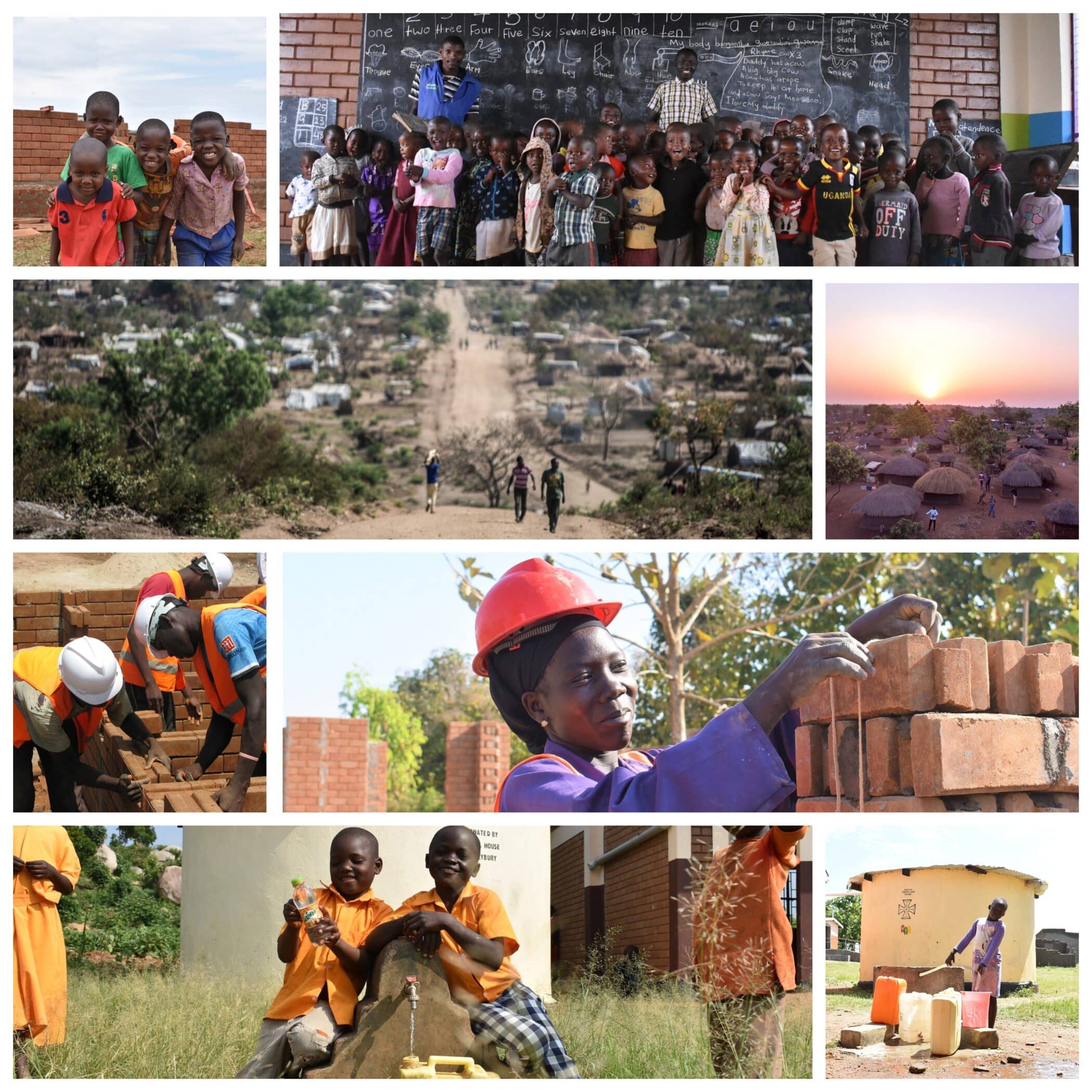
Working hard to be the greenest school in Bath
Case Study from King Edward’s School, Bath
King Edward’s School, Bath are working hard to be ‘the greenest school in Bath’, with pupils taking a leading role and working closely with members of staff to create a more sustainable approach to food procurement and waste, as well as their energy and transport commitments.
Now, KES seeks to establish an ambitious and all-encompassing plan for the future that involves the entire school community.
As a member of the KES Sustainability Committee, said:
“This is only the beginning: the KES Green Evolution has begun!”
Learn more in the blog, here.
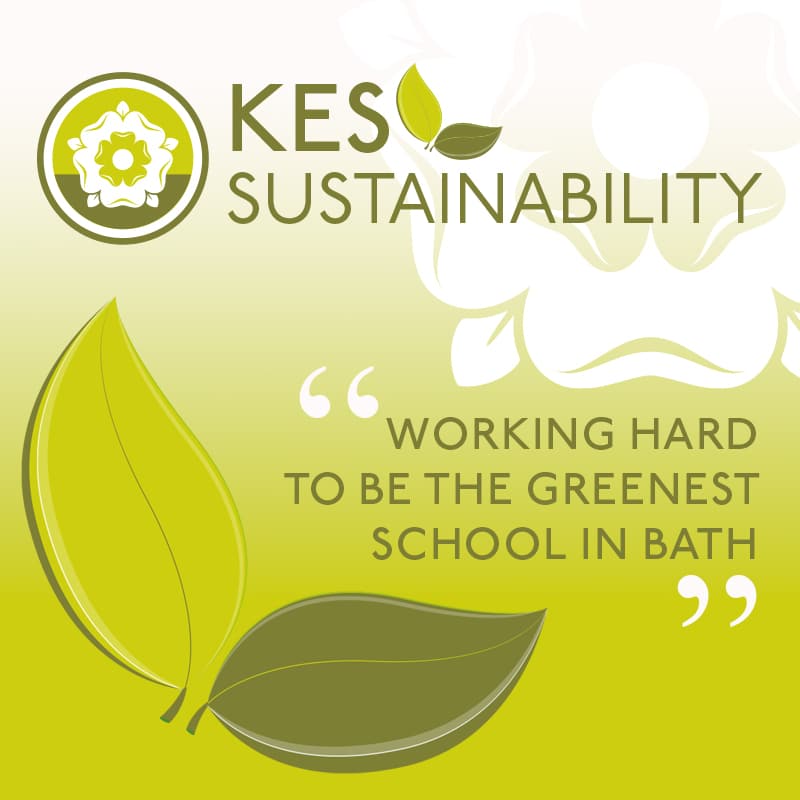
A Meating of the Minds: Gaining whole school consensus to reduce carbon footprint through catering
Blog by Oliver Staines, Head of Geography & Sustainability Coordinator, Leighton Park School
Catering at Leighton Park is excellent. Some children are registered for places at least in part due to ‘scrumptious brownies’. But there’s a problem. Catering accounts for up to 60% of CO2 emissions.
To coincide with COP28, the school is trying something new to begin tackling the issue. They are focussing on the emotive and polarising issue of steak, with a campaign entitled ‘A Meating of the Minds’.
Further details about the campaign, including full lesson resources, can be found in the blog, here.

Swap Don’t Shop: creative ways children can be involved in cutting their own carbon emissions
Blog by Lynne Farrand, Prep Eco-Lead, Manchester High School for Girls
The pupil-led Eco Council & Roots & Shoots Club at Manchester High School for Girls have a wealth of ideas and initiatives to promote sustainability in school. Their clothes, Christmas jumper and toy swaps have proved particularly popular and successful, and the girls are both aware and proud of the fact that their initiatives are creating positive ripples of enthusiasm for sustainability action throughout their entire school community.
Find out more here.
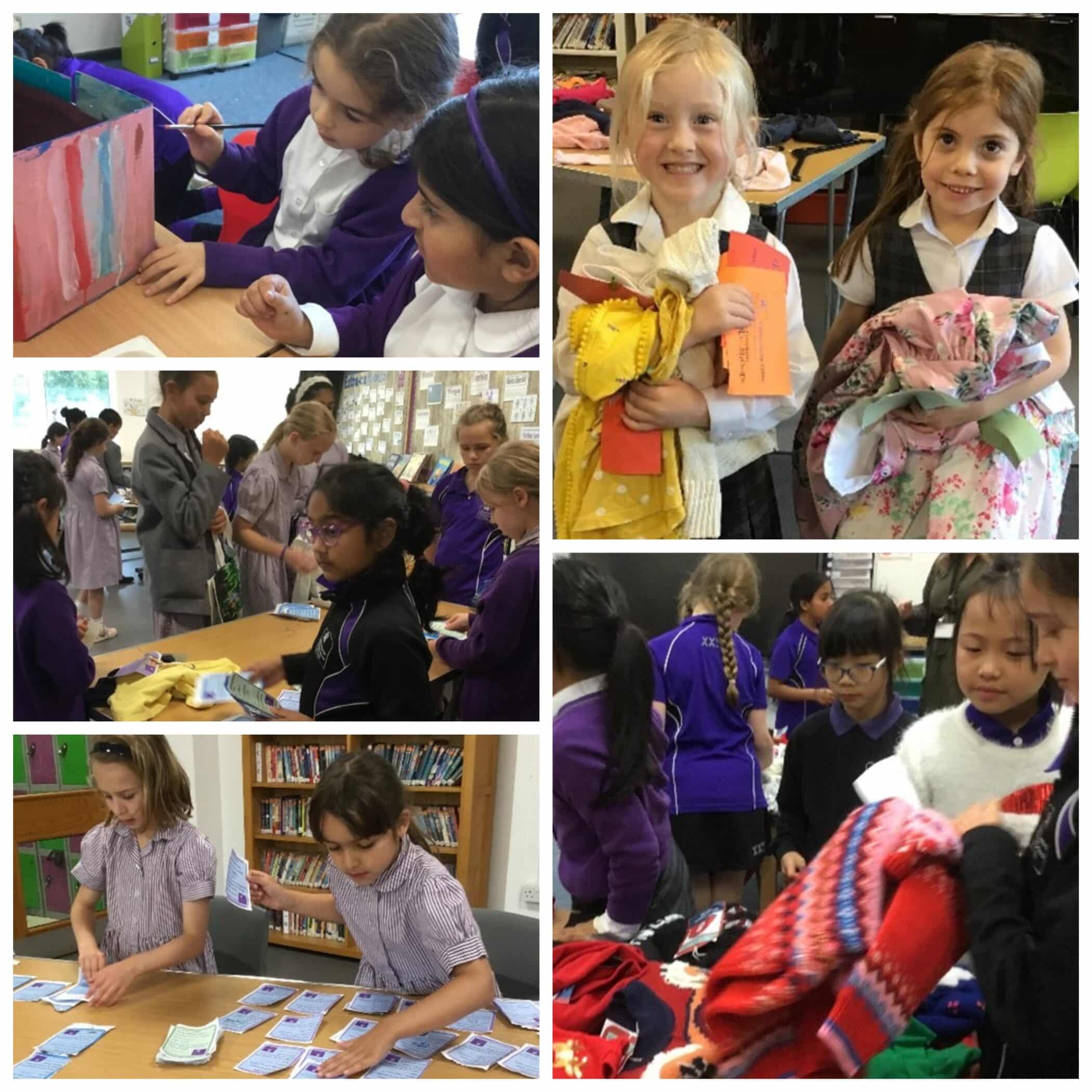
The Manchester Grammar School:
Sustainable power at school and away
Manchester Grammar School has an active student council who are closely involved in many of the school’s efforts to improve their environmental sustainability. Following the student council’s increased awareness around the environmental impact of transport, Manchester Grammar School is delighted to be working with Swans Travel to provide a battery-electric operated home-to-school coach service. The zero-emission coach will be used by pupils who travel to school from a wide area across the north of England, as well as for other members of the community during school holidays and at weekends.
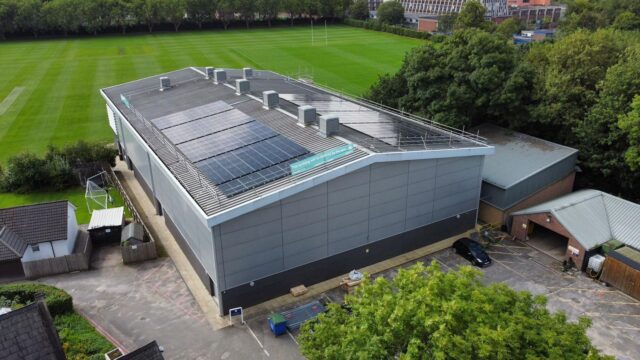
The school’s Estates Department have also been busy installing their first solar system on the roof of the sports hall, alongside other measures to help the school reduce their carbon footprint: installing cavity wall insulation, further roof insulation and the expansion of LED lighting throughout the whole school site. There are now 210 solar panels on the Michael Atherton Sports Hall, which has an estimated annual energy generation of nearly 70,000 kWh.
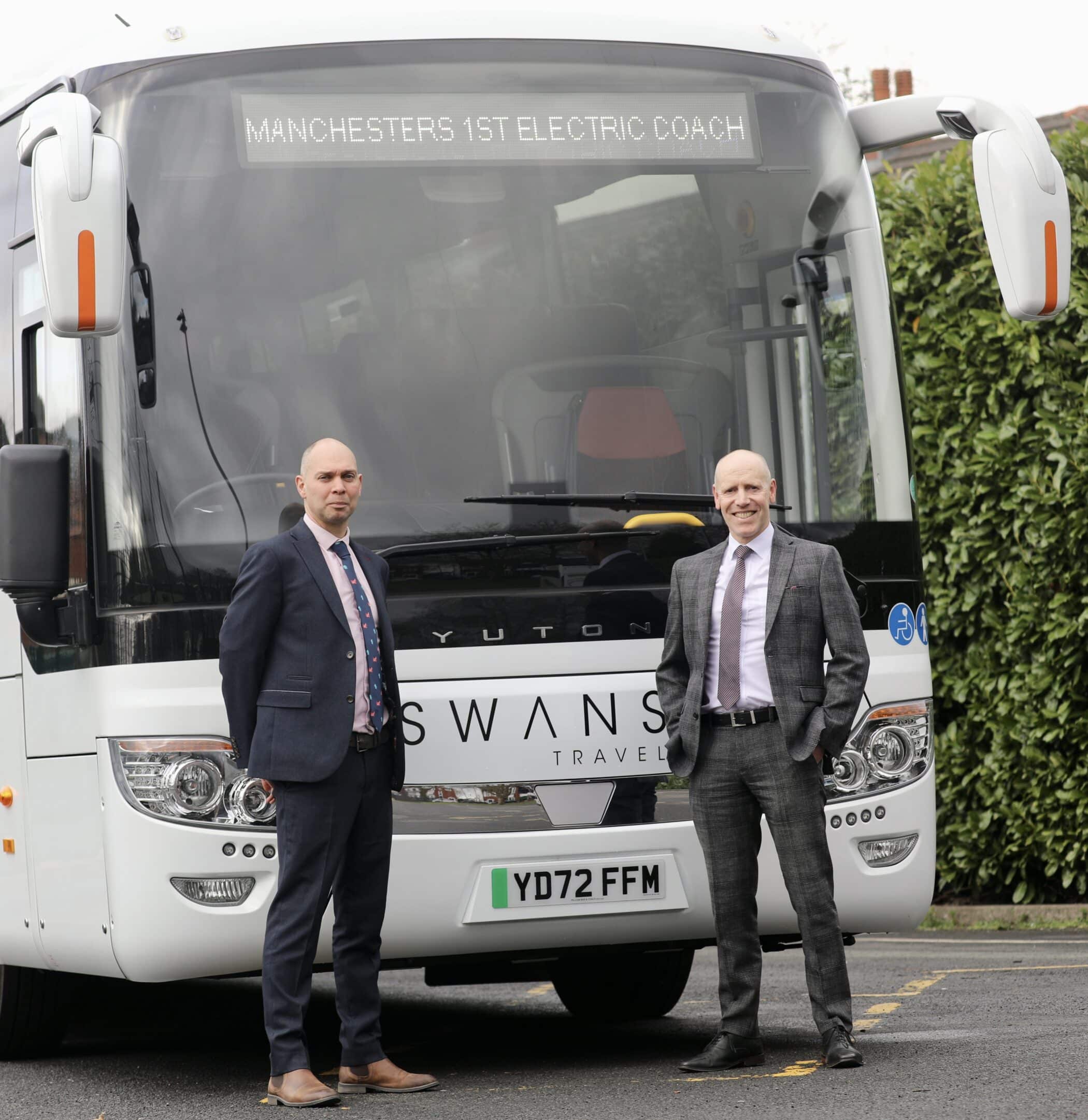
A sustainable school
Case study from Notting Hill & Ealing High School
From pupil-led Eco Warriors clubs and tree planting, to school and community partnerships and the carbon-neutral development of a new eco-friendly building, the updated sustainability strategy at Notting Hill & Ealing High School is empowering students with the knowledge and skills necessary to nurture a healthier planet.
Find out more in the blog, here.
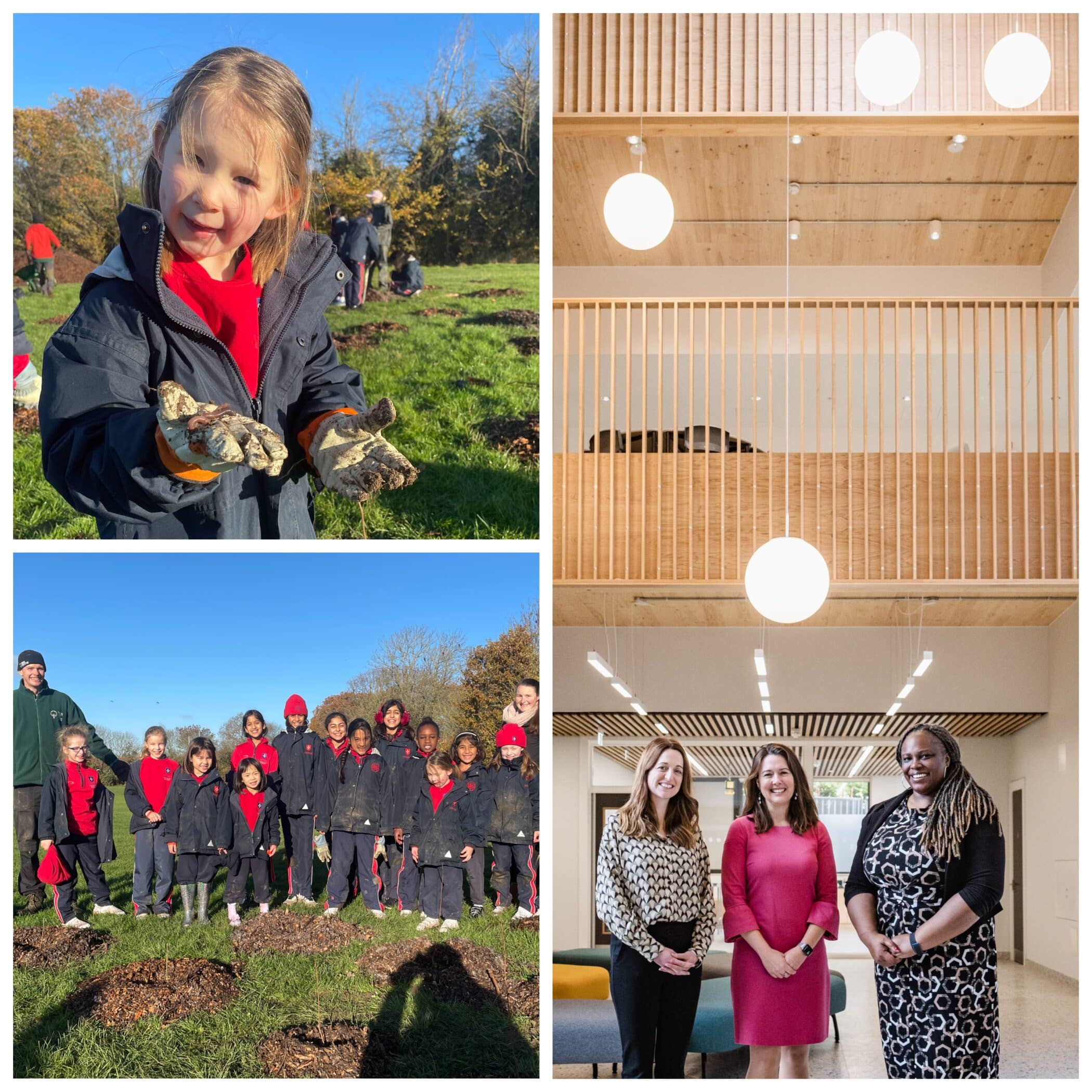
Growing Green: Pocklington School’s Sustainability Initiatives
Case Study by Pocklington School
At Pocklington School they have introduced various sustainability topics and eco-issues into the curriculum – both indoors and outdoors, and throughout their extra-curricular provision too. From cross-curricular projects spanning ICT, art and geography to a student-led eco-committee, they’re proud of the progress they’re making. They’re also pleased to be implementing some of the environmental changes they’re teaching and the fact that they can evidence the positive impact the work is having on their students past and present.
Find out more, here.
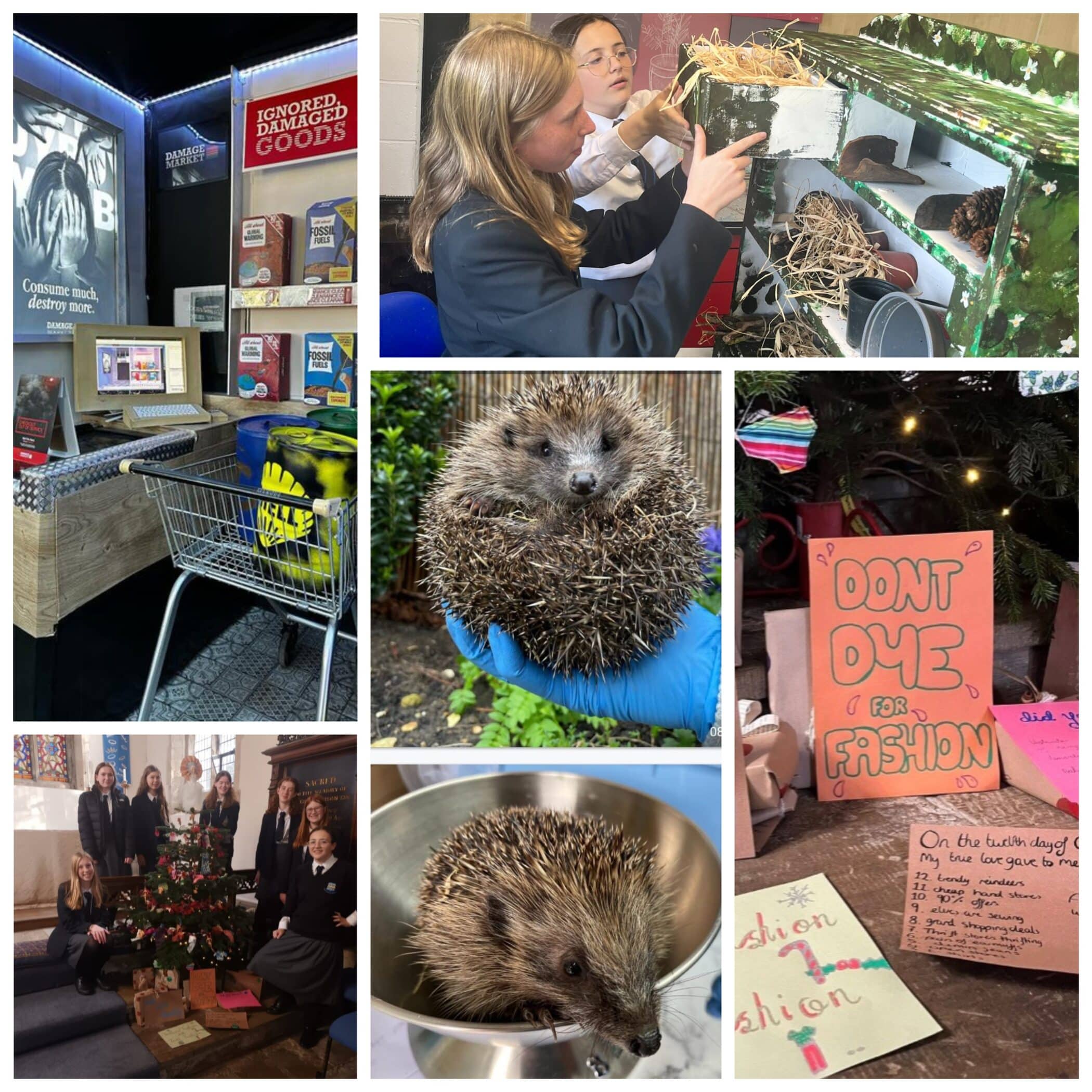
Setting Sail for a Greener Horizon: Navigating the Seas of Sustainable Sailing at RHS
Blog by Ed Sibson, Director of Sailing, Royal Hospital School
As a school with a world leading Sailing Academy, the Royal Hospital School is hugely aware that they are adding to landfill with sails, clothing and equipment that has reached the end of its life. For some time they have been looking for ways to reduce the levels of sailing related waste ending up in landfill, so are now excited to be involved in a collaboration with start-up company Sustainable Sailing and the Illusion Keelboat class to create a unique and innovative recycling scheme that will allow old sails to be made new again.
Learn more in the blog, here.
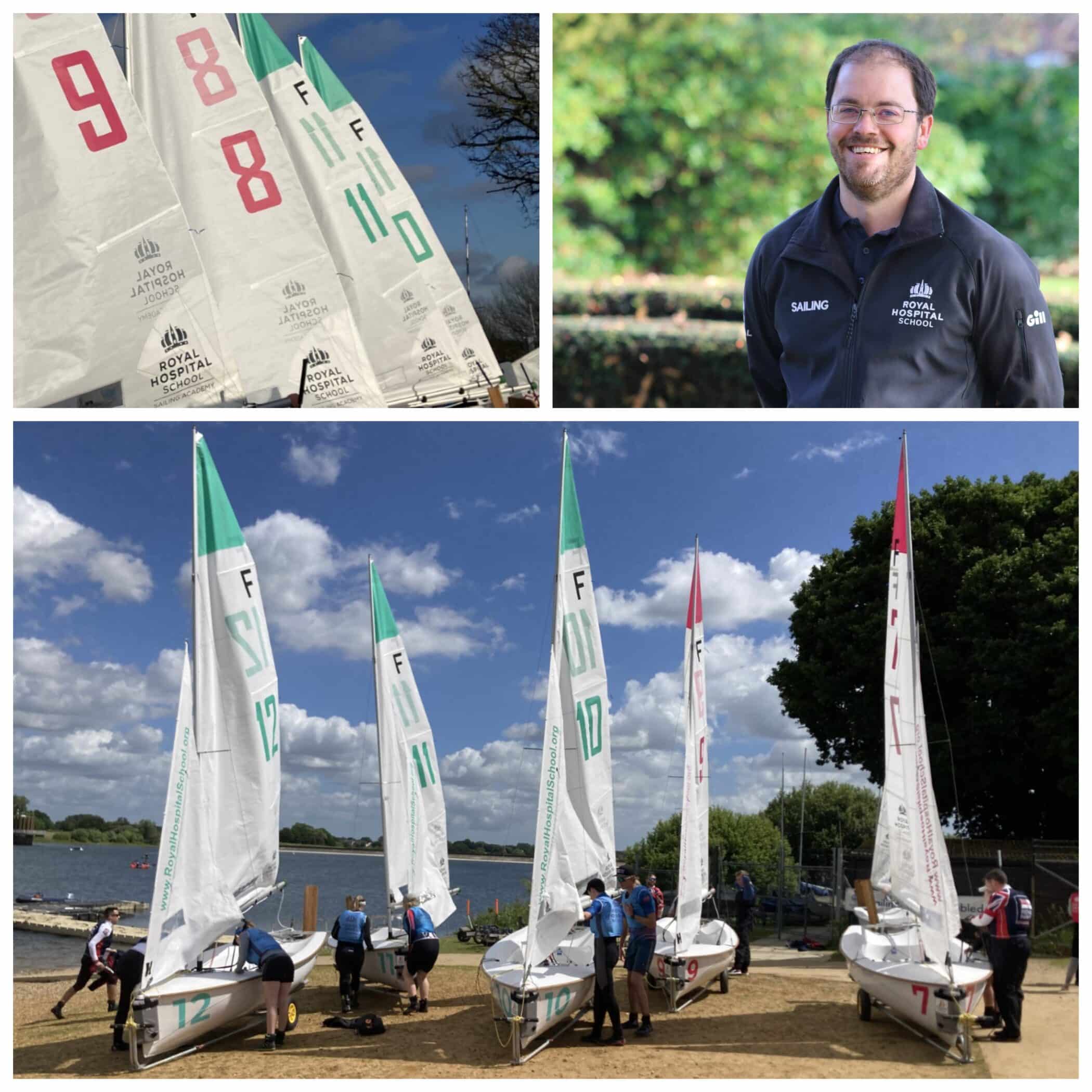
Preparing the next generation: Sustainability Pathway at St Edward’s School, Oxford
Blog by Hugh Stephens, Director of Teaching & Learning, St Edward’s School, Oxford
Pathways and Perspectives are new, fully accredited Middle Years courses offered to pupils at St Edward’s School, Oxford, from which pupils can choose two to take alongside their GCSE’s.
Here, Hugh Stephens explains more about these new courses, with a particular focus on the Sustainability Pathway, and the fact that the school hopes it will prepare their young people to have an informed and positive impact on the future of our planet.
Further details can be found in the blog, here.

Perthshire pupils send a message to COP28
Strathallan Prep School’s Eco-Council were invited to present their ideas, solutions and environmental actions at COP28 Youth Call to Action conference.
This was their message to the delegates and other schools around the world:
Tanglin Trust School – Making an Impact, Taking the Lead
Blog by Carla Randall, Assistant Head of Year 12, Tanglin Trust School
Sustainability is a key focus at Tanglin Trust School and there has been a renewed energy and focus since it was made a whole school priority. Guided by their core values and in recognition of ecological threats. they are strongly committed to reducing their impact on the environment and empowering students to rise to the challenges ahead.
From student-led action groups, Planet Protectors and Global Guardians, and taking part in School Green Awards, to working with large businesses such as Shell and the National Environment Agency, they have made good progress.
Find out more, here.
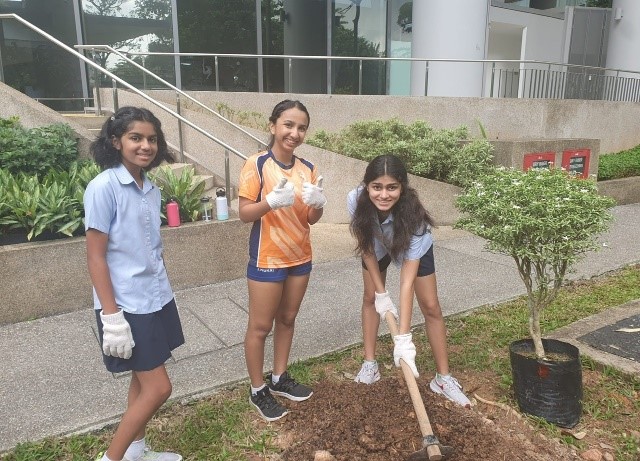
Wellington School:
One Planet. One Life. One Cup.
In order to reduce their impact on the environment, Wellington School and their catering supplier, Thomas Franks, have worked with Event Cup Solutions to introduce the pioneering site-wide sustainability initiative, the ONE Planet ONE Chance Reusable Cup System.
Across the campus there are designated collection points to dispose of cups, which are then collected, washed and reused in the café. A short video, produced by the student-led Eco-committee is now being used to promote the initiative throughout their community: One Cup System
“We are excited to be pioneering the new ONE Planet ONE Chance Reusable Cup System for our café – the first school in the UK to do so! The cups will have more than 300 uses, are insulated – keep hot drinks warm, yet cool to touch on the outside and are entirely reusable & recyclable. – Win, win! ”
Student-led Eco-committee, Wellington School
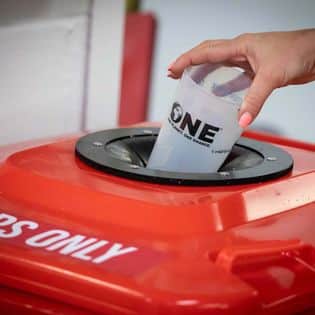
Resources for Schools
Below is a collection of resources based on the places colleagues in HMC schools have told us they’ve searched and found ideas and helpful information throughout their sustainability journeys.
The Climate Book
Eco-Schools
Future We Want
Geographical Association
Gov.uk
Green Schools Project
Let’s Go Zero
London Schools Pollution helpdesk
National Association for Environmental Education (NAEE)
The Royal Meteorological Society
SEEd Sustainability and Environmental Education
UK School Sustainability Network
UNESCO report: World heritage glaciers: sentinels of climate change
The Woodland Trust
Environmental Sustainability on Social Media
Further ideas and initiatives about Environmental Sustainability at HMC schools can be found in our collection of social media stories posted by HMC schools throughout the COP28 fortnight. Please see here.
Thank you to all HMC schools who have contributed to this Sustainability Hub. Although it’s not possible to showcase every initiative from every school, we understand that tackling climate change and improving environmental sustainability for the future is a key priority for many, if not all HMC schools.
Please contact [email protected] if any of the information shown here requires updating.
